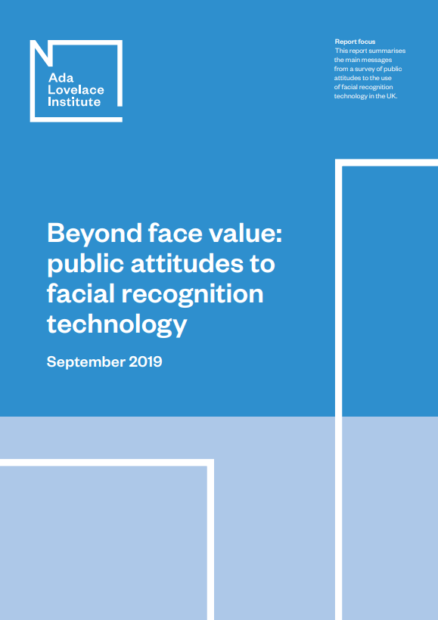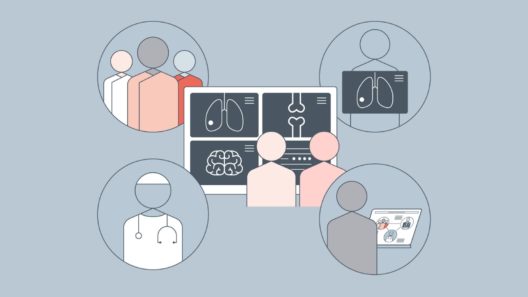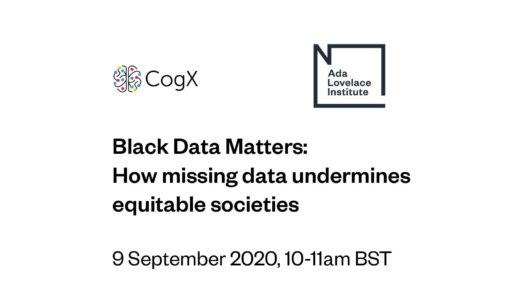In 2022, JUST AI moved to being hosted by the LSE. Learnings from this pilot project have contributed to greater understanding of the challenges and approaches to funding and hosting fellowship programmes, within the Ada Lovelace Institute and in the development of a broader data and AI research and funding community globally.
The Ada Lovelace Institute is delighted to convene a special track at Data for Policy 2020 – the premier global forum for interdisciplinary and cross-sector discussions around the impact and potentials of data-driven innovations in governance and policy.
The special track – Data Governance in the Public lnterest – includes two panels chaired by Alison Powell, Director of the Ada Lovelace Institute’s JUST AI network, to focus on issues of data access and data sharing in public life. The sessions will explore questions of governance, infrastructural constraints, and methods to establish data stewardship that embeds ethical values and supports struggles for justice.
Following an open call for proposals, we are delighted to be hosting 11 speakers who will be presenting nine papers which represent a variety of disciplinary perspectives, across two panels:
Tuesday 15 September, 15:15 BST
- Lily O’Flynn and Simon Whitworth, UK Statistics Authority, discussing: Digital Economy Act 2017, Research Strand: De-Identified Public Authority Data for Public Good Research
- Arthur Glenn Maail, World Wide Web Foundation and Dhanaraj Thakur, Centre for Democracy and Technology, discussing: Risk to Collaboration: Assessing the risks of Cross-border Open Data Sharing by Civil Society Organizations in the Lower-Mekong Region
- Craig Campbell, Oxford Internet Institute, discussing: Imagining Municipalities as Data Fiduciaries
- Marina Micheli, Joint Research Centre European Commission, discussing: Accessing privately held data to foster the public interest: Mapping public/private sector relations in twelve European cities
- Maria Savona, University of Sussex, discussing: Unravelling the contact tracing apps’ saga: Lessons to create synergies between decentralised and centralised data governance
Special Panel: Brave New Worlds? Ethics in Theory and Practice in Public Data Provision
Thursday 17 September, 09:00 BST
- Stergios Aidinlis, Centre for Socio-Legal Studies, University of Oxford, discussing: Reconsidering the ‘Public/Private’ Divide in Data Governance: Legal Realities and Ethical Implications
- Francesco Tava, Department of Health and Social Sciences; University of the West of England, discussing: Towards a New Ethical Approach to Data Governance: Challenges and Potentialities
- Felix Ritchie, Bristol Business School, University of the West of England, discussing: Risk, Precedents and Sand: Introducing Novelty into Practice in the Public Sector
- Elizabeth Green, Bristol Business School, University of the West of England, discussing: Implementing Ethical Models in Low Income Countries
Data for Policy Ambassador scholarships:
The usual price of a ticket to attend Data for Policy 2020 is £150. Data for Policy is committed to increasing diversity in its delegate community and is offering Data for Policy Ambassador scholarships to suitable candidates. They particularly welcome applications from groups which are currently underrepresented in the community, in particular those from developing nations, who will extend geographic diversity. For further details, and how to apply, please visit the Data for Policy website. Deadline for application is 21 August 2020.
#dataforpolicy2020 | @dataforpolicy

Delivering responsible data through the National Data Strategy
Examining how the commitment to responsible data in the UK's National Data Strategy could be realised and what it misses.

Facial recognition and policing – a test case of technology and consent
Giles Herdale argues for urgent action on biometric technology to preserve the principle of policing by consent in a digital age.

Ada Lovelace Institute convenes special track on data governance in the public interest at Data for Policy 2020
The Fifth International Conference includes two panels chaired by Alison Powell, Director of the Ada Lovelace Institute’s JUST AI network.

Rethinking data and rebalancing digital power
What is a more ambitious vision for data use and regulation that can deliver a positive shift in the digital ecosystem towards people and society?

Lessons from the App Store
Insights and learnings from COVID-19 technologies

What do the public think about AI?
Understanding public attitudes and how to involve the public in decision-making about AI

Beyond face value: public attitudes to facial recognition technology
First survey of public opinion on the use of facial recognition technology reveals the majority of people in the UK want restrictions on its use

The NHS COVID-19 app: is it an enduring public health technology?
Will the long-awaited contract tracing app deliver on its promises for 2020 and beyond?

Algorithmic impact assessment: a case study in healthcare
This report sets out the first-known detailed proposal for the use of an algorithmic impact assessment for data access in a healthcare context

Inform, educate, entertain… and recommend?
Exploring the use and ethics of recommendation systems in public service media

Code & conduct
How to create third-party auditing regimes for AI systems

Black data matters: how missing data undermines equitable societies
We joined the CogXtra session on The Tech We Want: An Ethical Approach to Innovation.